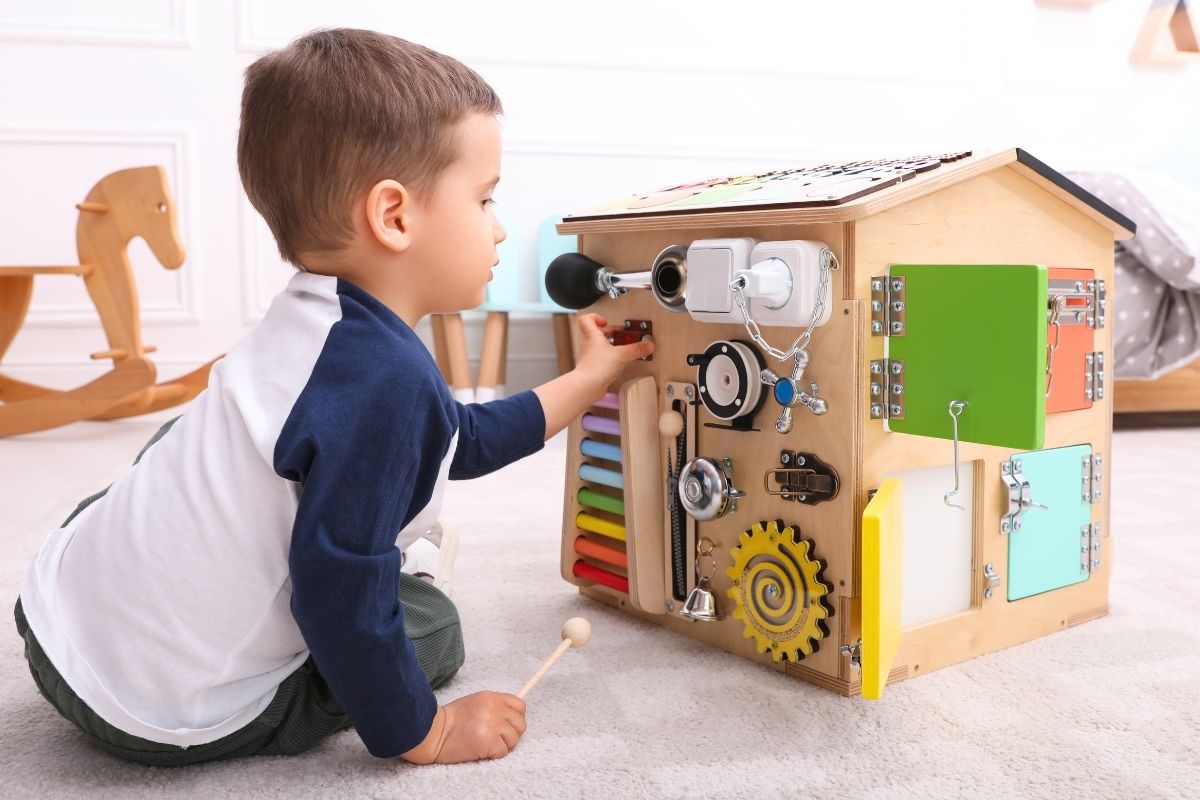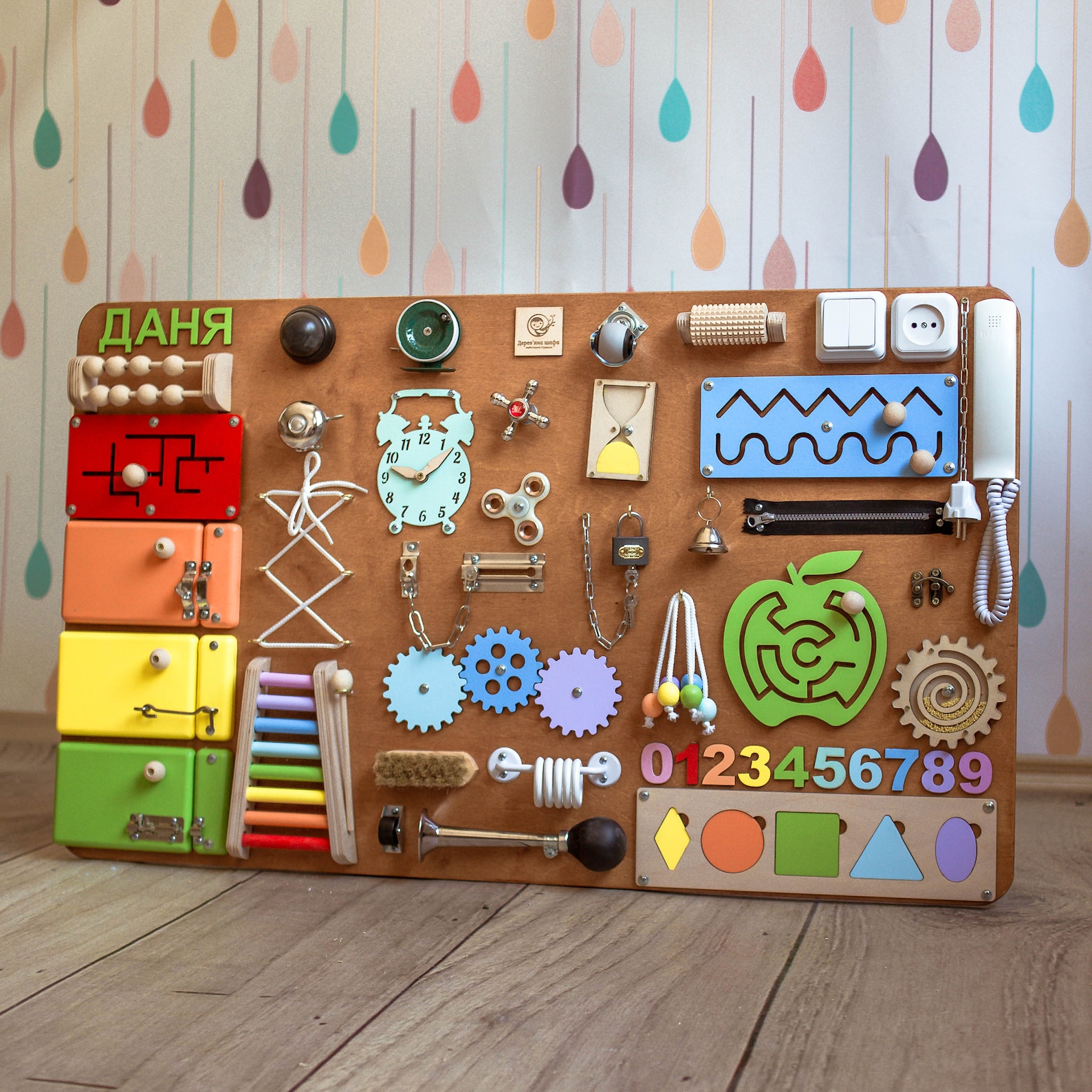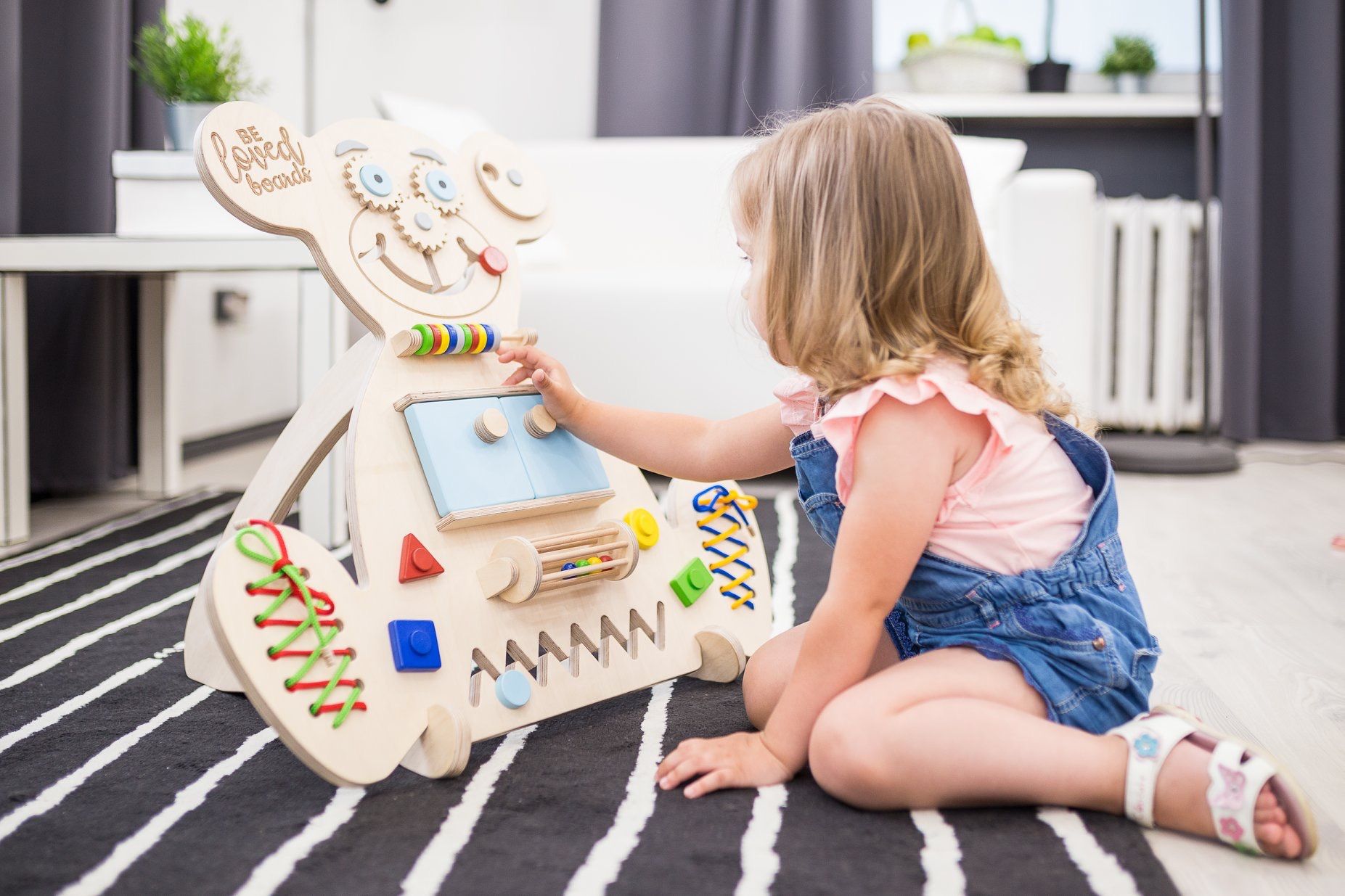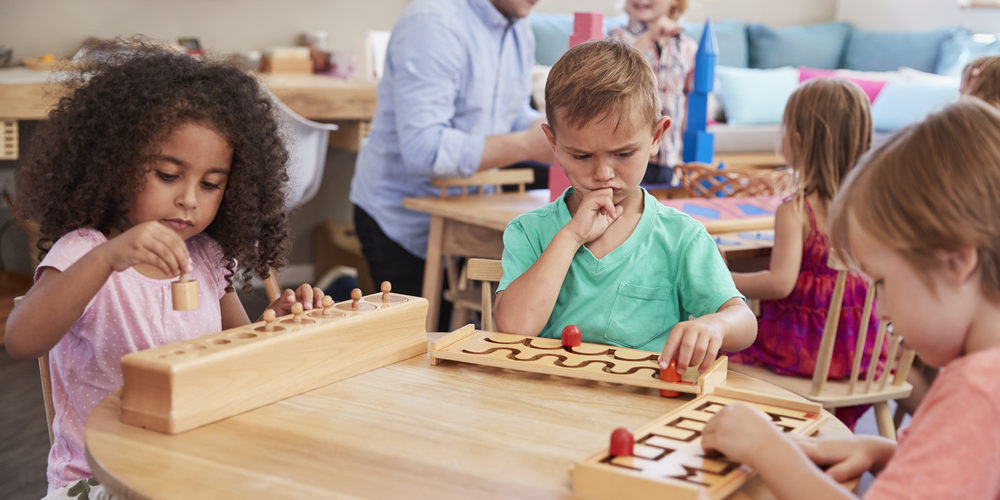Blog
Why Every Child Needs a Montessori Wooden Busy Board?
In the contemporary age of digital distractions and fast-paced living, the importance of tactile learning and the role of sensory experiences in child development cannot be overstated. Among the plethora of educational tools available, the Montessori wooden busy board stands out as an invaluable resource for children. Rooted in the principles of the Montessori method, these boards facilitate hands-on learning, promote independent play, and nurture fundamental developmental skills. This essay explores the multifaceted benefits of Montessori wooden busy boards, elucidating why every child would significantly benefit from having one.

Understanding the Montessori Philosophy
The Montessori method, founded by physician and educator Dr. Maria Montessori in the early 20th century, is premised on the belief that children learn best through active, hands-on engagement with their environment. This educational philosophy emphasizes self-directed exploration and immersion in learning experiences tailored to a child’s interests, abilities, and developmental needs. Part of this methodology involves the use of materials designed to captivate a child’s attention, facilitate creativity, and encourage problem-solving. The Montessori wooden busy board embodies these principles, providing a rich platform for exploration and discovery.
>>>Buy now:
Sensory Stimulation and Engagement
At the core of child development is the need for sensory stimulation. Montessori wooden busy boards engage multiple senses—sight, touch, and sound—thereby fostering an enriching learning environment. The myriad of textures, colors, and movable components found in these boards captivate children’s attention, motivating them to explore and learn. For instance, the tactile experience of manipulating wooden elements fosters fine motor skills, hand-eye coordination, and spatial awareness.
Studies have shown that sensory play is critical for cognitive growth in early childhood. Engaging with busy boards allows children to experiment and interact with various materials, encouraging curiosity and creative thinking. This sensory-rich experience is especially beneficial during the crucial developmental stages when children build their understanding of the world. Thus, wooden busy boards do not just serve as toys; they are essential tools that enhance sensory development and promote cognitive engagement.

Development of Fine Motor Skills
Fine motor skills, crucial for everyday activities such as writing, buttoning clothes, and manipulating small objects, are best developed through repetitive and engaging practice. Montessori wooden busy boards are specifically designed with elements that challenge children to use and refine their fine motor skills. Tasks such as turning knobs, snapping buttons, tying laces, and lifting flaps provide opportunities for strength-building and coordination.
Through imaginative play with a busy board, children manipulate objects and engage in actions that enhance their dexterity. Over time, these experiences contribute to their ability to perform more complex physical tasks. Moreover, the intrinsic motivation to succeed in these activities fosters a sense of achievement, positively reinforcing their self-esteem and encouraging them to tackle progressively challenging tasks.
Encouraging Cognitive Development
Montessori wooden busy boards do not solely focus on physical development; they are equally vital for cognitive advancement. As children engage with the board, they engage in critical thinking and problem-solving exercises. For example, they may explore cause-and-effect relationships by observing how different actions produce various results—such as how turning a knob opens a door or moves a piece.
Moreover, busy boards often incorporate elements of numeracy and literacy. Children might engage with counting beads, identifying colors, or matching shapes, all of which reinforce foundational knowledge in an interactive manner. Such hands-on experiences cultivate a love for learning, as children are more likely to remember and internalize concepts introduced during play, challenging the notion of traditional rote learning paradigms.

Independence and Self-Direction
One of the primary tenets of the Montessori approach is fostering a sense of independence in children. Montessori wooden busy boards empower children to take charge of their own learning journeys. They are designed to allow for open-ended exploration, where children can choose how, when, and with what elements they engage. This autonomy instills a sense of responsibility and initiative, encouraging children to become self-sufficient learners.
In an age where structured learning environments often dominate, busy boards provide a reprieve from overt instruction. Children can freely explore their interests while developing critical life skills like decision-making and self-regulation. Such independence not only enhances their learning experiences but also prepares them to navigate an increasingly complex world with confidence.
>>>Read more: Teach Your Child Responsibility and Boost Confidence with this Simple Daily Task: Ironing
Social Interaction and Cooperative Play
The inclusive design of the Montessori wooden busy board also promotes social interaction and cooperative play among children. When utilized in group settings, these boards serve as a focal point for collaboration. Children learn to share, take turns, and work together to achieve common goals or navigate challenges posed by the busy board.
Through such social interactions, essential life skills such as communication, empathy, and teamwork are fostered. Children learn the value of working alongside their peers, developing interpersonal skills that will serve them well throughout their lives. Furthermore, interactions around a busy board can ignite discussions about problem-solving strategies and collaborative approaches, enriching their communicative abilities.

Conclusion
In conclusion, the Montessori wooden busy board emerges as an indispensable tool in a child’s developmental toolkit, combining cognitive, physical, and social skill-building in an engaging and stimulating way. By integrating sensory experiences, nurturing fine motor skills, promoting cognitive growth, facilitating social interaction, and fostering independence, these boards embody the essence of the Montessori philosophy. In a world teetering on the brink of technological domination, it is essential to provide children with tools that encourage them to explore, learn, and grow in a holistic manner. Every child deserves the opportunity to explore, learn, and grow through engaging, hands-on experiences, and a Montessori wooden busy board is an ideal companion in this journey.
